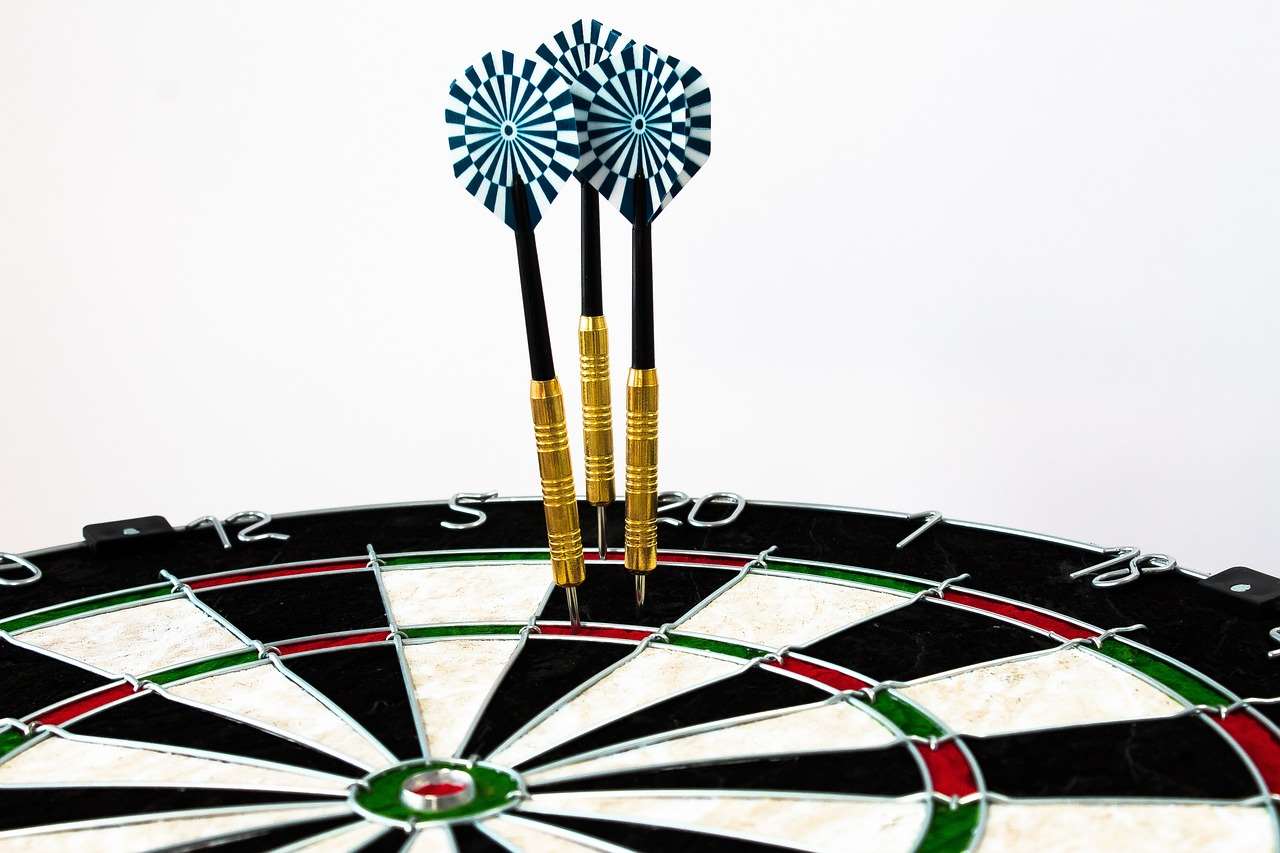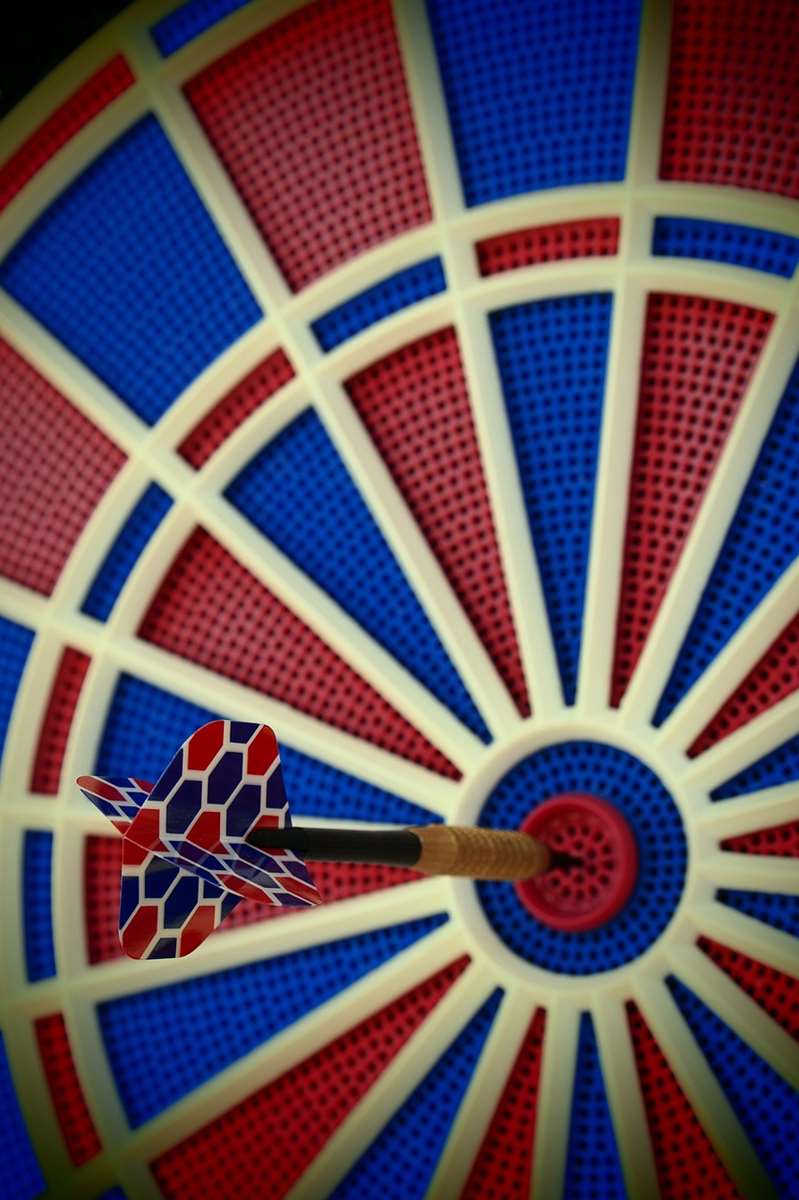The unsung hero of any darts match is the unspoken code of conduct that ensures fair play and respect: **the history of darts etiquette and sportsmanship**. This article explores how that etiquette evolved and the impact it has on the game today. Join us as we delve into the traditions, unwritten rules, and the spirit of good sportsmanship that define the true essence of darts.
⚠️ Still Using Pen & Paper (or a Chalkboard)?! ⚠️
Step into the future! The Dart Counter App handles all the scoring, suggests checkouts, and tracks your stats automatically. It's easier than you think!
Try the Smart Dart Counter App FREE!Ready for an upgrade? Click above!
Tracing The History of Darts Etiquette and Sportsmanship
Understanding **the history of darts etiquette and sportsmanship** requires a journey back to the origins of the game. Darts, in its early forms, was a casual pastime often played in pubs and taverns. As such, a formal set of rules governing player behavior wasn’t immediately established. Instead, a culture of respect and fair play gradually emerged, shaped by the social environment in which the game thrived. Early forms of etiquette revolved around basic principles of not distracting your opponent and maintaining a respectful atmosphere.

Early Pub Culture and the Genesis of Darts Sportsmanship
The pub environment significantly influenced the development of darts etiquette. The shared space meant that players had to be mindful of others, both those playing and those simply enjoying their drinks. Excessive noise, unsportsmanlike conduct, or any form of cheating were generally frowned upon. Over time, these unwritten rules became ingrained in the culture of the game. The concept of a ‘gentleman’s game’ began to take root, emphasizing fair play and respect above all else. We can see this influencing even adapting darts rules for beginners so it is approachable for anyone.
Key Components of Darts Etiquette
Darts etiquette is more than just a set of rules; it’s a reflection of respect for the game, your opponent, and the overall sporting environment. While not always formally written down, these guidelines are essential for ensuring a positive and enjoyable experience for everyone involved.
Respecting Your Opponent
One of the most crucial aspects of darts etiquette is showing respect to your opponent. This includes avoiding any actions that could be seen as distracting or disrespectful. Examples include:
- Avoiding excessive celebration: A small acknowledgement of a good throw is acceptable, but overly boastful celebrations are generally considered poor form.
- Maintaining silence during your opponent’s throw: Refrain from talking, moving, or making any noise that could disrupt their concentration.
- Offering encouragement: Even in a competitive match, offering words of encouragement after a particularly good throw from your opponent demonstrates good sportsmanship.
Maintaining a Fair Playing Environment
Ensuring a fair playing environment is paramount. This involves adhering to the rules of the game, avoiding any form of cheating, and respecting the equipment.
- Accurate scoring: Ensure that scores are accurately calculated and recorded. If there’s a discrepancy, resolve it amicably and fairly.
- No tampering with the dartboard: Avoid moving or adjusting the dartboard in any way that could give you an unfair advantage.
- Respecting the darts: Treat your darts and your opponent’s with respect. Avoid throwing them carelessly or damaging them intentionally. This is especially important if you consider Basic Darts Fundamentals for Beginners.

The Importance of Sportsmanship in Darts
Sportsmanship in darts goes beyond simply following the rules. It encompasses the spirit of fair play, respect, and graciousness, both in victory and defeat. A true sportsman accepts the outcome of the game with dignity and acknowledges the skill of their opponent.
Evolution of Darts Etiquette in Modern Play
While the fundamental principles of darts etiquette remain consistent, the modern game has seen some subtle shifts. The increasing professionalism of darts, with televised tournaments and sponsorships, has brought greater scrutiny to player behavior. However, the core values of respect and fair play continue to be upheld.
Televised Tournaments and Professional Conduct
Televised tournaments have placed darts players in the spotlight, requiring them to maintain a high standard of conduct at all times. This includes adhering to dress codes, avoiding controversial statements, and displaying professionalism both on and off the oche. The scrutiny of television cameras and live audiences has further reinforced the importance of sportsmanship.

The Role of Governing Bodies in Enforcing Etiquette
Governing bodies such as the Professional Darts Corporation (PDC) and the World Darts Federation (WDF) play a crucial role in enforcing etiquette and sportsmanship. They have the authority to issue warnings, fines, or even suspensions for players who violate the code of conduct. These measures help to ensure that the game is played fairly and that the reputation of darts is protected.
Examples of Good and Bad Sportsmanship in Darts History
Throughout **the history of darts etiquette and sportsmanship**, there have been numerous examples of both commendable and regrettable behavior. Examining these instances provides valuable insights into the importance of maintaining a high standard of conduct.
Notable Examples of Good Sportsmanship
- Phil Taylor: Widely regarded as one of the greatest darts players of all time, Phil Taylor was also known for his sportsmanship. He consistently showed respect to his opponents, both on and off the stage, and was always gracious in victory and defeat.
- Raymond van Barneveld: Another popular figure in the darts world, Raymond van Barneveld was known for his friendly demeanor and his willingness to engage with fans. He often praised his opponents, even after losing matches, and was admired for his positive attitude.

Instances of Controversial Behavior
Unfortunately, there have also been instances of controversial behavior in darts history. These incidents serve as a reminder of the importance of adhering to the principles of sportsmanship.
- Player A’s excessive celebration: Player A’s overly aggressive celebrations after each throw were perceived as disrespectful by his opponent and the audience, leading to criticism and a formal warning from the governing body.
- Player B’s alleged cheating: Player B was accused of subtly moving the oche to gain an advantage. While the allegations were never proven, the incident cast a shadow over his reputation and highlighted the importance of fair play.
Practical Tips for Maintaining Good Darts Etiquette
Whether you’re a seasoned professional or a casual player, there are several practical steps you can take to ensure that you’re maintaining good darts etiquette.
Before the Game
- Introduce yourself to your opponent: A simple handshake and introduction can help to establish a friendly atmosphere.
- Clarify the rules: Before the game begins, ensure that both players are in agreement on the rules and any specific variations that may be in effect. You might consider Fun dart game variations with modified rules.
- Check the equipment: Inspect the dartboard and your darts to ensure that they are in good condition and that everything is fair.

During the Game
- Maintain silence during your opponent’s throw: This is perhaps the most important rule of darts etiquette. Avoid any distractions that could disrupt their concentration.
- Be mindful of your celebrations: Acknowledge good throws with a subtle nod or a quiet word of encouragement, but avoid excessive or boastful celebrations.
- Be honest with your scoring: Always strive to accurately calculate and record scores, and be willing to admit any mistakes.
After the Game
- Shake hands with your opponent: Regardless of the outcome, shake hands with your opponent and offer words of congratulations or encouragement.
- Acknowledge your opponent’s skill: Even if you lost the game, acknowledge the skill of your opponent and give credit where it’s due.
- Avoid making excuses: If you lost the game, avoid making excuses or blaming external factors. Accept the outcome with grace and dignity.
Conclusion: The Enduring Importance of Darts Etiquette and Sportsmanship
As we’ve explored, **the history of darts etiquette and sportsmanship** is intertwined with the very essence of the game. From its humble beginnings in pubs and taverns to the professional arenas of today, the principles of respect, fair play, and graciousness have remained constant. By upholding these values, we not only ensure a positive and enjoyable experience for everyone involved, but also contribute to the enduring legacy of darts as a sport that celebrates skill, integrity, and camaraderie. Remember these unwritten rules next time you set up the board and consider using How to make darts fairer with handicap rules. So, grab your darts, step up to the oche, and let’s play with respect and sportsmanship!
Hi, I’m Dieter, and I created Dartcounter (Dartcounterapp.com). My motivation wasn’t being a darts expert – quite the opposite! When I first started playing, I loved the game but found keeping accurate scores and tracking stats difficult and distracting.
I figured I couldn’t be the only one struggling with this. So, I decided to build a solution: an easy-to-use application that everyone, no matter their experience level, could use to manage scoring effortlessly.
My goal for Dartcounter was simple: let the app handle the numbers – the scoring, the averages, the stats, even checkout suggestions – so players could focus purely on their throw and enjoying the game. It began as a way to solve my own beginner’s problem, and I’m thrilled it has grown into a helpful tool for the wider darts community.